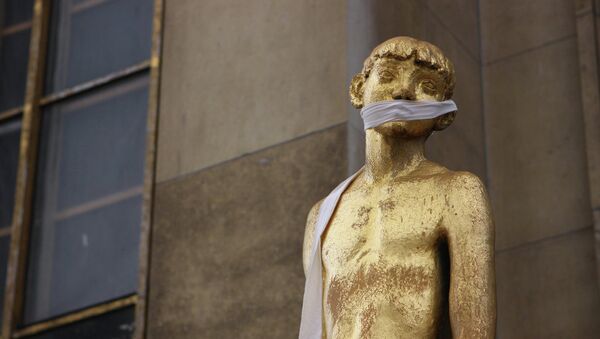The directive introduces an EU-wide definition of "trade secret," meaning information which is secret, has commercial value because it is secret, and has been subject to reasonable steps to keep it secret.
YES to an EU framework for #tradesecrets without compromising media freedom &whistleblowers https://t.co/SA296AmAmB pic.twitter.com/jSnxLVEkVi
— ALDE Group (@ALDEgroup) 14 April 2016
It would oblige EU member states to ensure that victims of misuse of trade secrets are able to defend their rights in court and to seek compensation.
Civil rights group warn that the directive could be used to prevent journalists from uncovering unscrupulous practices in European companies — a staple diet of investigative reporting. It is also feared that it could lead to companies taking legal action against whistleblowers and journalists themselves.
MEPs adopt #TradeSecrets bill that threatens whistleblowers & journalists. Greens are 😠 https://t.co/S19e7c9Z08 pic.twitter.com/4zqfMgXIfH
— European Greens (@europeangreens) 14 April 2016
The main issue lies in the definition of trade secrets. Critics say the proposed definition is extremely broad and could be used to sue anyone who "unlawfully acquires, uses or discloses" secret business information.
Open to Abuse
Julia Reda, a German MEP who sits with the Green group in the European Parliament, said on her website:
"These new rules on 'trade secrets' leave the door open to abuse by unscrupulous businesses across Europe. The unnecessarily broad definition of what constitutes a 'trade secret' will enable corporations to keep information secret with a view to circumventing legislation, even when this information should by rights be in the public domain."
My speech on #TradeSecrets: We must not expand corporate secrecy and deter #whistleblowers! https://t.co/2QWxUwxy3K
— Julia Reda (@Senficon) 13 April 2016
"The new law also created major uncertainties about the role of whistleblowers and investigative journalists. All information, including information about malpractice, can be protected as a trade secret. As a result, the burden of proof that the public interest outweighs the business interest will now always lie with the whistleblower. We now urge the European Commission to present comprehensive European rules on whistleblower protection without delay and will be presenting a proposal to this end next month," she wrote.
Rapporteur Constance le Grip, who led talks to get the new rules approved in the European Parliament said they were designed to protect companies from intellectual property theft and not to deter whistleblowers or journalists.
"With one company out of every five a victim of theft of trade secrets every year, harmonization should allow the creation of a safe and trustworthy environment for European companies, which will see their intangible assets and know-how secured. I've also been fighting to ensure that the safeguards laid down in this text to protect the work of journalists and whistle-blowers are as real and as unambiguous as can be," she said.


